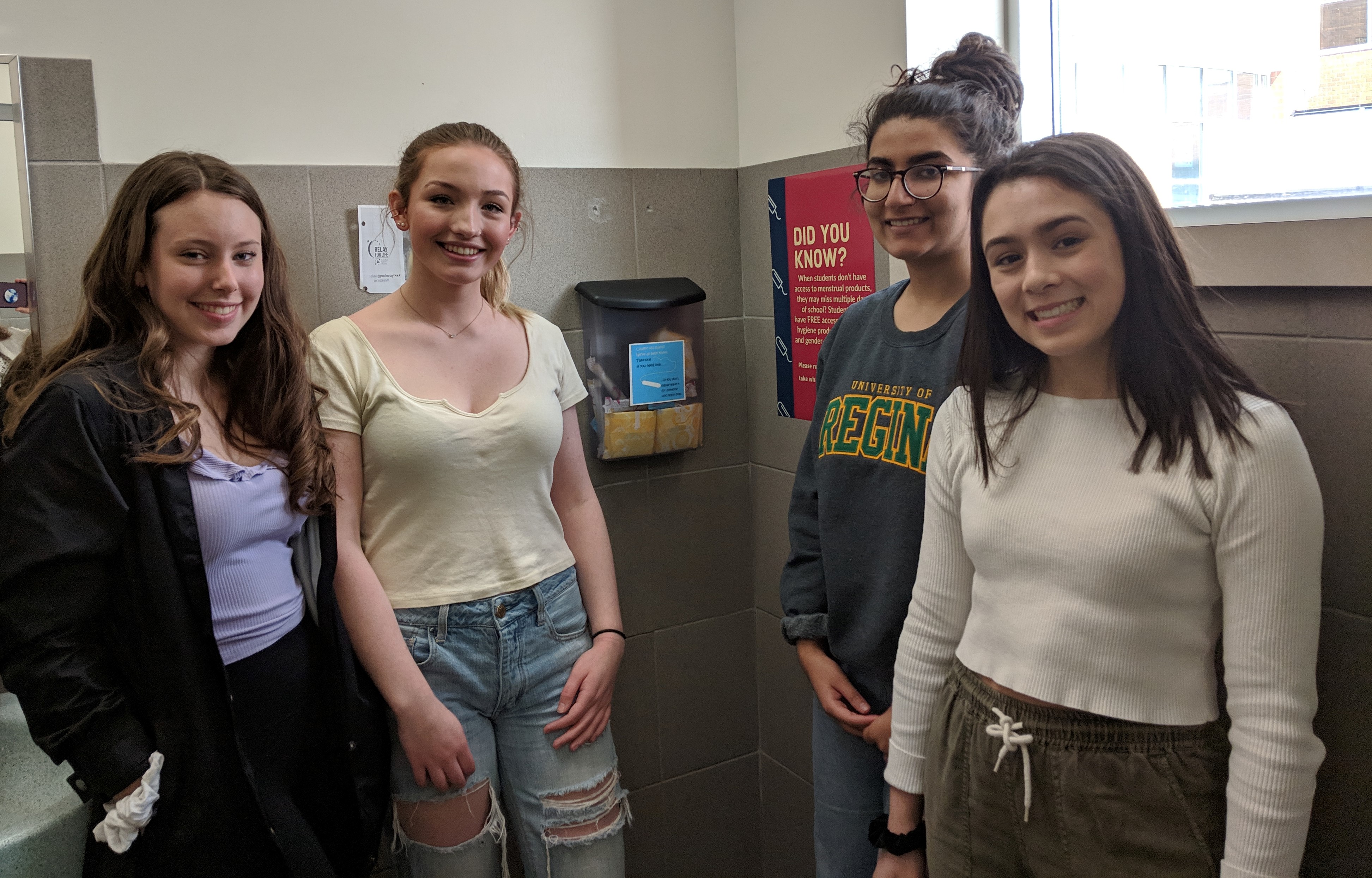ASD-W has launched a menstrual hygiene pilot project at two high schools to help female born students better manage their health and prevent lost time at school.
“In
ASD-W, sanitary napkins and/or health pads
may not be freely available or easily assessable to students while at school,”
said Joanna Seeley, public health nurse for the district’s healthy learners in
school program. “There are students who have reported staying home from school
during menstruation due to a lack of adequate support to handle periods. Caring
for periods is an important part of being healthy. Providing students with free
pads and tampons in school bathrooms helps them stay focused on their learning
and sends a message about value and respect for their bodies.”
Seeley
said Horizon Public Health’s Healthy Learners in School program nurses in ASD-W
reached out to school administrators in the spring of 2018 to find out what
resources their schools had to supply menstrual hygiene products (tampons and
pads) to students.
In
past years, schools have been able to obtain free company samples. However, it
came to school nurses’ attention companies were no longer providing free
menstrual hygiene product samples to schools. As a result, some schools were
purchasing their own supplies and some teachers were spending their personal
money to have tampons and pads on hand for students.
In
the fall, a summary report was provided for the district about what middle and
high schools are doing to address the need for students who need menstrual
hygiene products while at school. With the support of Acting School Superintendent Catherine Blaney, Horizon Public Health approached the Department of
Education (EECD) with those findings. In response, the Department of Education and Early Childhood Development agreed to provide financial support for a pilot project in ASD-W to explore
ways students who are experiencing period poverty could be supported while at
school.
Horizon
Public Health formed partnerships with representatives from EECD, ASD-W and the UNB Sociology Department to plan, develop, implement and evaluate the menstrual hygiene pilot project.
Due to the size and diversity of its student population, the two high schools
selected for the project were Fredericton High and Leo Hayes High. There are
965 female born students at FHS and 740 female born students at LHHS.
In
November, students completed a school-wide survey to assess their attitudes and
beliefs about menstrual hygiene needs. Two student groups, “Go with the Flo” at
FHS and “Period Pact” at LHHS were formed.
Horizon
Public Health helped facilitate the purchase and installment of dispensers and
menstrual products (pads and tampons) in the female and gender-neutral washrooms at both schools. To bring awareness of the availability and
accessibility of these products, FHS and LHHS students implemented a poster
campaign and created announcements.
“The purpose of
the pilot project is to explore whether or not a provincial initiative to
provide free menstrual hygiene products in school bathrooms decrease student
absenteeism and class tardiness,” Seeley explained. “At ASD-W, we feel that no
students should face losing instructional time because they are too embarrassed
to ask for, can't afford or simply cannot access sanitary products.”
Over the past year, various international health agencies have spoken about menstrual hygiene as a human rights issue. A United Nations Sustainable Development Goal calls for access to sanitation and hygiene for all by 2030, “paying special attention to the needs of women and girls."
Shown in the photo below are (left to right), Hayley Banks, Carrie Pelkey, Dhanista Ambwani and Hannah Tran from Leo Hayes HIgh School. Every week, students are filling dispensers in school washrooms and product use is being tracked.
